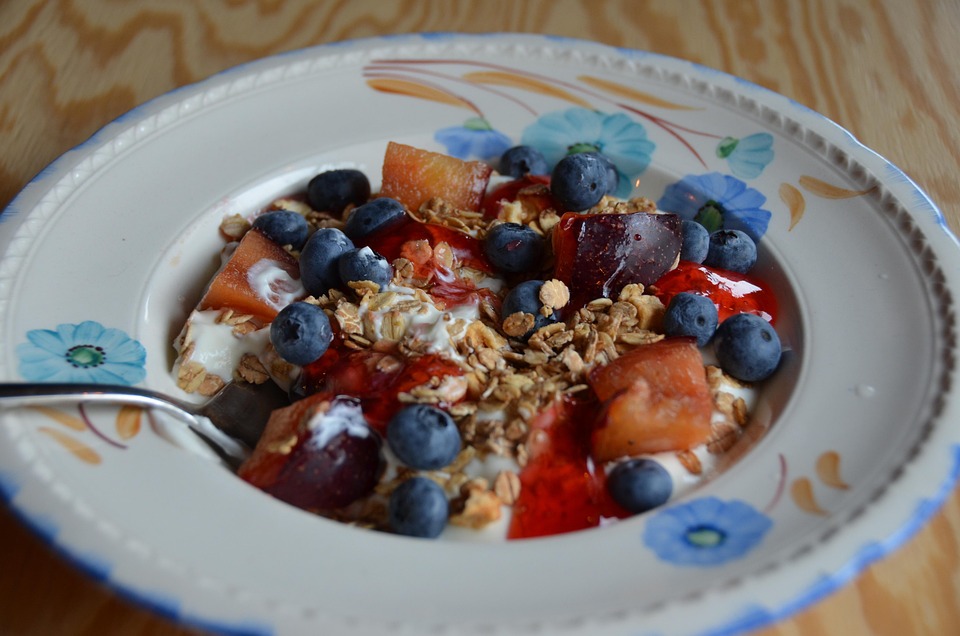Your basket is currently empty!
Achieving a Balanced Diet: Essential Tips for Healthy Eating in the UK

Achieving a Balanced Diet: Essential Tips for Healthy Eating in the UK
In the bustling world of dietary advice, one might wonder: what exactly constitutes a "balanced diet"? In the UK, where culinary traditions mingle with modern nutritional science, achieving a well-rounded intake is both an art and a science. Let’s delve into some essential tips to help you navigate this intricate landscape.
Understanding Your Plate
A balanced diet hinges on the idea of variety. The NHS recommends the "Eatwell Guide," which illustrates how your meals should be structured. Picture your plate divided into sections: fruits and vegetables should take centre stage, occupying at least half of your meal. This isn’t merely a suggestion; it’s a call to embrace nature’s bounty. Why not experiment with seasonal produce? The UK’s farmers’ markets and local grocers offer a cornucopia of choices, from vibrant berries in summer to hearty root vegetables in winter.
The Importance of Whole Grains
Carbohydrates often get a bad rap, but not all carbs are created equal. Whole grains—think brown rice, quinoa, and wholemeal bread—are your allies in maintaining energy levels and supporting digestive health. These complex carbohydrates are rich in fibre, which not only keeps you full longer but also aids in regulating blood sugar levels. As the saying goes, "you are what you eat," so why settle for empty calories when you can fuel your body with goodness?
Proteins: The Building Blocks
Next up are proteins, essential for muscle repair and overall bodily function. The UK dietary guidelines suggest aiming for a mix of plant-based and animal proteins. Lentils, chickpeas, and beans are fantastic vegan options, while lean meats, fish, and eggs can round out your intake. Interestingly, did you know that the UK has seen a rise in plant-based diets? This shift is not just a trend; it reflects a growing awareness of sustainability and health. Could this be the future of eating?
Fats: The Good, the Bad, and the Essential
While it’s easy to vilify fats, the truth is, some fats are essential for our well-being. Unsaturated fats found in avocados, nuts, and oily fish should be part of your daily intake. They can help reduce the risk of heart disease and support brain health. However, moderation is key—balancing your intake of saturated fats from sources like butter and fatty meats is equally crucial. Perhaps it’s time to rethink your relationship with fats?
Hydration: The Overlooked Element
As we savour our meals, let’s not forget the importance of hydration. Water is often overshadowed by other dietary discussions, yet it plays a pivotal role in digestion and overall health. The UK’s weather can be deceptively dry, especially in winter months, so keeping hydrated is essential. Herbal teas and infused waters can be delightful alternatives to plain water, adding variety to your hydration routine.
A Mindful Approach
Finally, let’s address the way we eat. Practising mindfulness during meals—savouring each bite and recognising hunger cues—can profoundly affect our relationship with food. In our fast-paced lives, it’s all too easy to rush through meals or eat out of boredom. Taking a moment to appreciate your food not only enhances enjoyment but can also aid in digestion and promote healthier choices.
As we embark on this journey towards a balanced diet, remember that every small change counts. Whether it’s incorporating more whole foods into your meals or opting for water over sugary drinks, each decision contributes to your overall well-being. Embrace the adventure of healthy eating, and let it enrich your life.
BargainsTrust continues to bring you a wealth of curated information on the best products, helping you make informed choices that support your journey to health and wellness.
Related Blogs
-

Unlocking the Benefits of a High-Protein Diet: Boost Your Health and Fitness
-

Transform Your Evenings: The Ultimate Guide to an Effective Evening Routine for Better Sleep and Productivity
-

The Transformative Power of Gratitude: Enhancing Mental Health and Wellbeing
-

Unlocking the Benefits of a Low-Carb Diet: Your Ultimate Guide to Healthy Living
